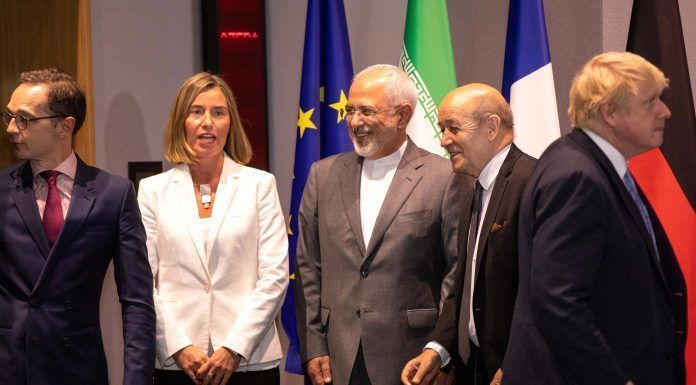By Sabine Siebold
ABU DHABI, June 9 (Reuters) – Germany’s foreign minister will meet Iranian President Hassan Rouhani in Tehran on Monday, a German diplomatic source said, as part of a concerted European effort to preserve Iran‘s nuclear pact with world powers and defuse rising U.S.-Iranian tensions.
A cautious thaw in long antagonistic relations between Tehran and Washington set in when Iran struck a 2015 deal with six big powers limiting its nuclear activity. But hostility has resurged since President Donald Trump withdrew Washington from the accord in 2018 and reimposed sweeping sanctions on Iran.
West European signatories, including Germany, want to try to keep the nuclear accord alive although they share the Trump administration’s disquiet about Iran‘s ballistic missile programme and its role in conflicts around in the Middle East.
Germany, France and Britain maintain that the nuclear pact remains the best way to limit Iran‘s enrichment of uranium, a potential pathway to the development of nuclear weapons, and to seek agreement with Iran on other security issues in future.
“I can confirm that the (German) Foreign Minister will meet President Rouhani on Monday,” said the diplomatic source, giving no further details.
German Foreign Minister Heiko Maas warned during a weekend stopover in Iraq en route to Tehran about the dangers of any conflict with Iran for the entire Middle East.
“We Europeans are convinced that it is worth trying to keep the Vienna nuclear agreement with Iran,” Maas said, adding he wanted dialogue even when disputes seemed insurmountable.
Washington has sent more military forces to the Middle East, including an aircraft carrier, B-52 bombers and Patriot missiles, in a show of force against what U.S. officials call Iranian threats to U.S. troops and interests in the region.
Last month, Iran scaled back some commitments under the 2015 deal and warned that in 60 days it would resume refining uranium to a higher fissile degree than that permitted by the accord if Europe failed to shield its trade benefits from U.S. sanctions.
Iran has always said its nuclear activity is peaceful and refuses to put its missile and military capabilities on the negotiating table, as the Trump administration has demanded.
Iranian Foreign Minister Mohammad Javad Zarif was quoted by Fars news agency on Sunday as saying Maas’s trip to Tehran showed Germany was trying to “keep the (nuclear deal) alive”.
But, suggesting Tehran did not view Maas as a mediator between Tehran and Washington, he added: “It is unlikely that the German foreign minister is travelling to Tehran to carry a special message.”
The German foreign minister will also meet Zarif in Tehran.
Maas, who also stopped in Jordan and Abu Dhabi on his Middle East tour, has coordinated his trip with France and Britain and it also discussed it with U.S. Secretary of State Mike Pompeo.
(Additional reporting by Bozorgmehr Sharafedin in London Writing by Madeline Chambers Editing by Mark Heinrich)


